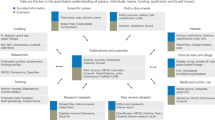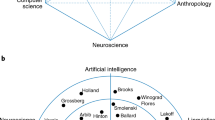Abstract
IT is now more than three hundred years since Galileo originated the process in philosophy which, in its maturer form, we now call science. This “method of philosophating”, to use Salusbury's quaint seventeenth-century phrase, calls for careful scrutiny—not, at this time of day, to decide whether it has value or not, but to determine precisely what its value, its significance and its potential danger might be. One aspect of science, I think, is in general imperfectly appreciated, namely, its essentially progressive character. The motive-power behind all philosophy is the need or the desire to understand the meaning of experience, and especially those parts of experience which touch us most deeply. Accordingly, the pre-scientific philosophers took all experience for their province and aimed at producing at once a scheme of things which could comprehend the whole.
This is a preview of subscription content, access via your institution
Access options
Subscribe to this journal
Receive 51 print issues and online access
$199.00 per year
only $3.90 per issue
Buy this article
- Purchase on Springer Link
- Instant access to full article PDF
Prices may be subject to local taxes which are calculated during checkout
Similar content being viewed by others
References
âœThe Nature of the Physical Worldâ, by Sir Arthur Eddington, p. 275.
âœThe Social Function of Scienceâ, by J. D. Bernal (Routledge, 1939).
Author information
Authors and Affiliations
Rights and permissions
About this article
Cite this article
DINGLE, H. The Missing Factor in Science*. Nature 160, 108–110 (1947). https://doi.org/10.1038/160108a0
Issue Date:
DOI: https://doi.org/10.1038/160108a0
This article is cited by
-
The Missing Factor in Science
Nature (1947)
Comments
By submitting a comment you agree to abide by our Terms and Community Guidelines. If you find something abusive or that does not comply with our terms or guidelines please flag it as inappropriate.



